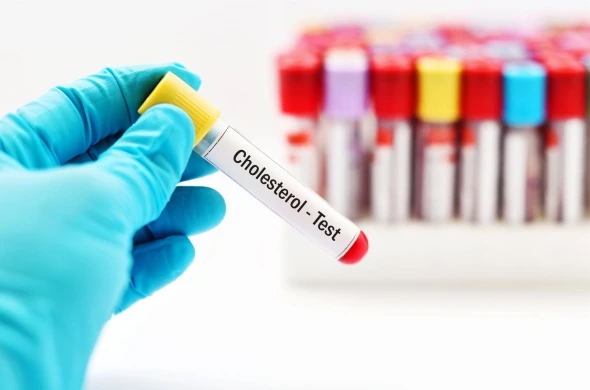When you hear the word “cholesterol,” it’s easy to feel a pang of worry. We’ve been told it’s something to keep in check, but few of us truly understand what it means or why it matters. If you or a loved one has been diagnosed with high cholesterol, known medically as hypercholesterolemia, you might be wondering what comes next.
The good news? Hypercholesterolemia Explained doesn’t have to be overwhelming. With knowledge and actionable steps, you can take meaningful control of your heart health. Let’s break down what high cholesterol really means, separate fact from fiction, and explore how you can manage it effectively for a stronger, healthier heart.
What Is Hypercholesterolemia? Understanding the Basics
In simple terms, hypercholesterolemia means there’s too much LDL (“bad”) cholesterol in your blood. Think of LDL cholesterol as sticky particles that can build up inside your artery walls, forming plaque. Over time, this plaque can narrow your arteries, making it harder for blood to flow and increasing your risk of heart attack or stroke.
It’s important to know that not all cholesterol is bad. HDL (“good”) cholesterol actually helps remove LDL from your bloodstream. The goal isn’t to eliminate cholesterol entirely, it’s to achieve a healthy balance.
Debunking Common Cholesterol Myths
Let’s clear up a few misconceptions:
- Myth: Only older or overweight people have high cholesterol.
Fact: Hypercholesterolemia can affect anyone, young, old, thin, or overweight. Genetics, diet, and activity level all play roles. - Myth: Eating cholesterol-rich foods (like eggs) is the main cause.
Fact: For most people, saturated and trans fats have a bigger impact on blood cholesterol than dietary cholesterol itself. - Myth: Medication is the only solution.
Fact: While medication helps some individuals, lifestyle changes are powerful, and often the first line of defense.
How to Manage High Cholesterol: Your Heart-Health Action Plan
Managing cholesterol is within your reach. Here’s how to start:
1. Embrace Heart-Healthy Eating
You don’t need a restrictive diet, just smarter choices. Focus on:
- Fiber-rich foods: Oats, beans, apples, and berries help lower LDL.
- Healthy fats: Avocados, nuts, olive oil, and fatty fish like salmon boost HDL.
- Limit saturated and trans fats: Reduce processed foods, fried items, and fatty meats.
2. Move More, Sit Less
Regular physical activity raises HDL (“good”) cholesterol and helps manage weight. Aim for:
- At least 150 minutes of moderate exercise (like brisk walking, cycling, or swimming) per week.
- Activities you enjoy, consistency is more important than intensity.
3. Maintain a Healthy Weight
Even a small amount of weight loss can improve cholesterol levels. Combine balanced eating with regular activity for sustainable results.
4. Consider Medication if Needed
For some, especially those with genetic factors, lifestyle changes may not be enough. Statins or other cholesterol-lowering medications can be highly effective when prescribed by your doctor.
5. Avoid Tobacco and Limit Alcohol
Smoking lowers HDL and damages blood vessels. Quitting is one of the best things you can do for your heart. If you drink, do so in moderation.
The Importance of Knowing Your Numbers
You can’t manage what you don’t measure. Ask your doctor for a lipid panel, a simple blood test that checks:
- Total cholesterol
- LDL (“bad”) cholesterol
- HDL (“good”) cholesterol
- Triglycerides
Knowing your numbers helps you and your doctor create a personalized plan.
Small Steps, Big Impact
Managing cholesterol isn’t about perfection. It’s about progress. Start with one change, like adding a daily walk or swapping butter for olive oil, and build from there.
Your heart health is a journey, not a sprint. With each positive choice, you’re investing in a longer, healthier life.
You’re in Control
Hypercholesterolemia Explained is really about empowerment. By understanding your cholesterol and taking proactive steps, you’re not just reducing a number, you’re protecting your heart, enhancing your well-being, and embracing a future full of vitality.
Here’s to your heart health, you’ve got this.
Always consult with a healthcare provider before making significant changes to your diet, exercise routine, or medication. This information is not a substitute for professional medical advice.
